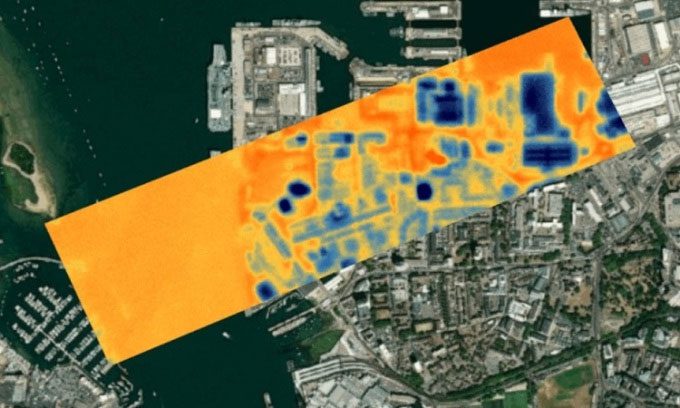The satellite device designed by a British company will measure thermal performance from buildings and identify structures that contribute to the urban heat island effect in the city.

The HotSat-1 satellite equipped with thermal performance sensors. (Photo: Satellite Vu)
The startup company Satellite Vu in London launched a new satellite named HotSat-1 on June 12, aimed at helping address the impact of climate change globally. “We are introducing the first thermometer in the sky. Satellite Vu will deploy a constellation of 8 satellites to measure thermal performance from any building on the planet,” said the company’s CEO, Anthony Baker. HotSat-1 is designed with high resolution to observe rooftops and walls of individual buildings from an altitude of 500 km.
To achieve its goal of zero emissions by 2050, the UK is undergoing infrastructure changes to enhance efficiency, particularly due to the large number of homes built before 1970. By utilizing city-wide data, Satellite Vu can quickly display the 20% of buildings in the worst condition, thereby facilitating upgrades to these properties.
HotSat-1 can identify structures and open spaces that exacerbate the urban heat island effect, including large parking lots in retail centers, which significantly raise temperatures in cities and towns. This information allows urban planners to determine the best locations for planting greenery and cooling the environment.
HotSat-1 also monitors pollution and detects sudden changes in river water temperatures. The sensors on the satellite were previously tested on an aircraft flying over the Ealing area of London. The UK’s national mapping agency, Ordnance Survey (OS), will track data from the satellite.
With global temperatures continuously rising, NASA is also utilizing the Applied Remote Sensing Training Program (ARSET) in 2022 to mitigate the effects of heat and develop a heat vulnerability index to reduce health risks for urban residents.





















































